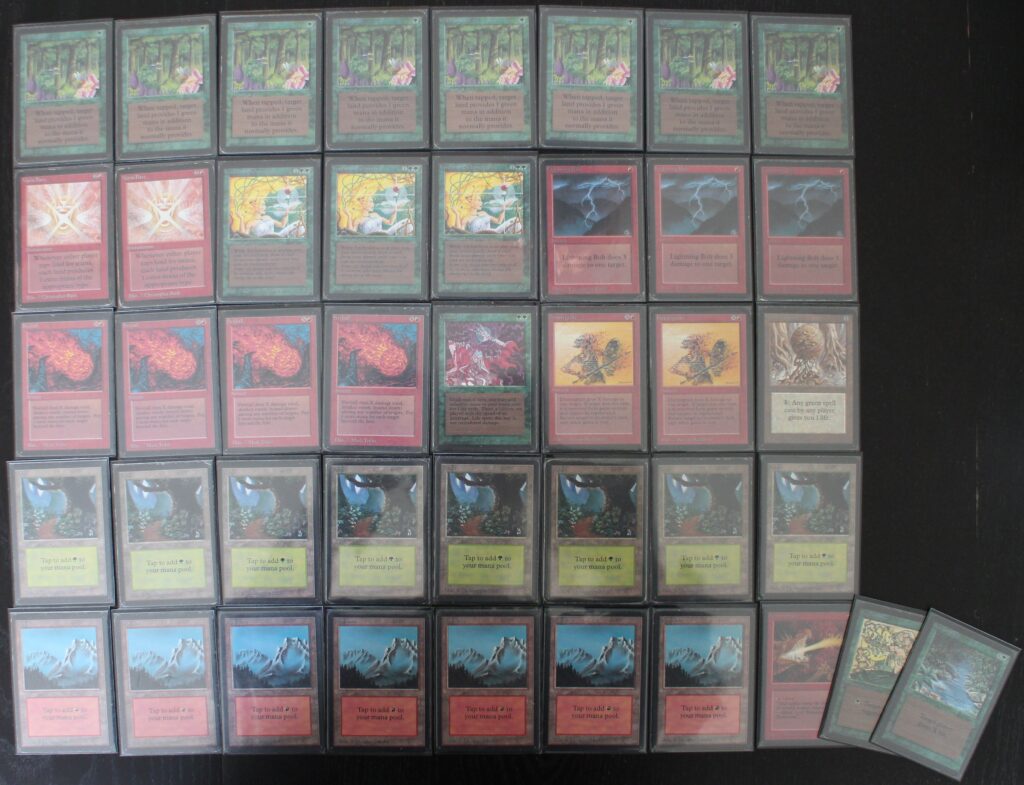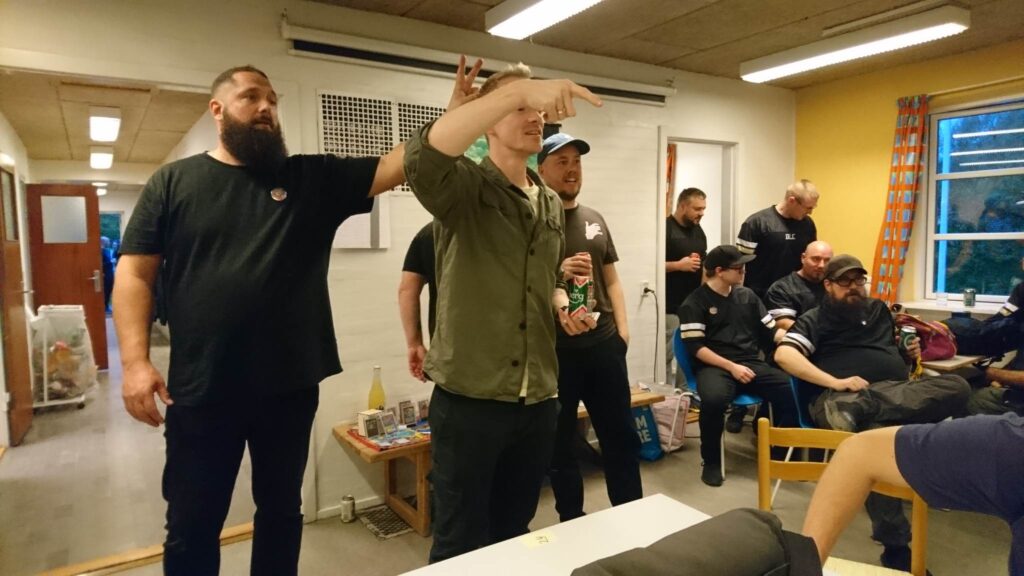And how to play it, to become an even greater member of the Old School community
In January last year I read an article on the very nice – no great, even! – Danish news site, Zetland (if you read Danish, please check it out, it is outstanding journalism and writing in general). Now, that is not really an extreme or extraordinary thing for me to do. Actually I read quite a lot of articles on this online fountain of wisdom. This time though, it set something in motion.
What caught my eye on this specific piece of online text was that it provoked something in me. As my returning reader would probably know by now, I like to see myself as rather open-minded and I have a strong belief in the worth of every human being. I am humanistic in my ground values.
This article, though, stated something in the very headline (even though Zetland makes it a point not to do clickbait) that I did not find aligned with my beliefs and my experience of the world. It said:
We are all on the hunt for status. And it can actually be a good thing
It was an article about status and how we – you, me, your mother, my sister, her daughter and everyone else – are always and constantly playing a status game. It is the very fabric of human society and maybe the most central human experience.
The journalist who wrote this specific article, Torben Sangild, is a strong writer. He often has some very cool and interesting considerations on life, but the above is not his claim. He was simply referring to a book, he had read. A book by Will Storr called “The Status Game – On Human Life and How to Play It.”
I read Sangilds very interesting piece, and readily decided that I had to read the book it was all about. Even though I, as Sangild, found the theory rather cynical in its views on the human nature. But sometimes, I believe, it is good to read something you don’t agree with upfront.
Yep, that’s me right there: When I am not playing Old School Magic or writing about it, I like to read what I call smarty-ass books; Fanz’-de-schmance books about how the world works, or who we should blame when it doesn’t.
Okay…
It may not be all I do, when I am not playing Magic. I also work around 40 hours a week, tend to my house, make sure my kids get something to eat and don’t kill each other, watch Netflix shows with my wife and so on. So my point is this: I have a lot of very fat smarty-ass books on a bookshelf in the middle of my living room, taunting me for not really having the time to read them, but also looking impressive when guests visit me.
And when I dissect it (after having read Storrs book), I acknowledge that having smart books on display – books I may never realistically get around to actually read – that is actually me going directly for some status points right there…

What is the status game?
Because what is it really, Will Storr wants us to understand? What is this Status Game that we are apparently all playing all the time?
Well, first of all one of Storrs points is that it is not something we are taught directly. We live it. It is also not something we can ever quit, except maybe if we go live in complete solidarity with no interaction whatsoever with any other human being.
But the status game is also not necessarily a bad thing.

Will Storr divides the status game into three types: Dominance, Virtue and Success games. Each different type has its different showing.
The dominance game is often the most brutish and primitive. Dominance games are often decided by sheer power – for example seen in the animal kingdom, but also for example in gangs (at least gangs in popular culture…). The dominance doesn’t necessarily have to be physically violent, one of the example Storr uses is the cancel culture, which is a dominance game where groups gain status by ganging together to cancel someone/something.
In a virtue game, you gain status by being virtuous. It is all about living up to certain ethical or moralistic standards that are shared among the players of that specific virtue game. It could be a religious congregation.
Then there is the Success game. In success games it is all about being good at something, and achieving success in said thing. Storr writes that it is more than simply winning something. There is a broader perspective of showing skill or specific knowledge about the specific thing that will make you gain more status in the context of the Success Status Game.
All status games will to some degree be a mix of either two or all three of the above.
It is also very important to mention, that these different status games are only valid – only played – in specific settings. Someone from some gang will not get a lot of status from you for beating you up – most likely he will just get the police on his neck. But in his own group of (relatively horrible) compadres, he will most certainly rise in status.
Likewise, I don’t put a lot of status on someone being extremely devout to Christianity or any other religion – at least not for their religious views – but within their congregation it is a completely different matter!
But status games are also a phenomenon that has the potential to move things forward in society. A lot of scientific progress has its roots in success status games amongst the brightest minds. Virtue games obviously have the power to make the world a better place – for example when people with power distributes some of this power, to people without power. Thus showing their enormous virtue and goodness of hearts, but also inventing democracy!
And why is it relevant here?
Relevance is always such a strong word on these walls, but anyway: Why did I find it interesting to write such a long text about a book I have read, that is about something as esoteric as the ever elusive status we all want to achieve?
Well, because I made my own little take on the Status Game when it comes to Magic, and maybe especially Old School Magic.
My claim is that we are also constantly playing a Status Game, or rather, several status games. Every time you upgrade that Revised card to something Unlimited or even black bordered, you do it for status. At least partly. Even though we probably all love our cards, just for being so beautiful, and even though many of us are probably telling us selves that that extra upgrade is because that specific card is even better, cooler, more true in the Beta version that in the Unlimited. We do not only do it for ourselves. At the very least we do it to be able to play a success status game at some point, when we take our cards out of the bank vault and sell them to become handsomely rich.
But my claim is, that also for those of us who actually buy cards to play, and not slab and store in cold, dark vaults, a lot of what we do, we do for status. Actually, when we think about it, pretty much all of Magic the Gathering only still exists because it is (also) a status game. Without any status attached to some of the cards, we would all just print whatever we wanted to play, and play it. We would certainly not pay thousands of euros for cardboard.
My major point of this whole post is this: Magic is – also in this aspect – a condensation of the human experience, and is, as such, a status game. There are several different ways to play the Magic Status Game, and because I am the benevolent humanist guy I am, I am here to write a bit about how to strengthen your community, while also gaining even more status…
The Magic Status Game
What I want to do here is to make you aware of some of the underlying status interactions in the community, the different Magic Status Games we play all the time. Maybe I can inspire you to play the game even harder, than you are already doing. Because one thing that is great about Status Games is that they don’t have to be Zero-Sum-Games. We can all grant upon one another more status. And whether we find it cynical or not, the feeling of gaining and having status is rather sweet.
It may be time for another photo – just to start out my argumentation of what kind of status games I see in the Old School community:

Ah yes, the true wizards deck. My absurd creation of a deck consisting entirely of cards from the very first edition, the Limited Edition Alpha. That hits a lot of sweet spots. Not just because I find the cards both historically important, flavorful, beautiful and valuable in themselves, but also because I know that it is absolutely not for all to assemble a deck of nothing but Alpha cards. It shows and emphasizes my success in the sphere of Magic.
I believe this is the first and foremost status game we play: the game of sweet swagger and expensive cardboard. Slamming a Black Lotus always gets you a bit of status. Slamming an Alpha version is just something else. But this Success game is not confined to the printings of the cards – altars, signatures and other hard-or-expensive-to-get cards or accessories will all grant you some amount of status in the right places.
To play a benevolent status game with beautiful cards, my take would be to enjoy my cards – but never brag. Tell the crazy stories about how you acquired some specific card from a flea market random binder back in 2005. And remember you probably also started a bit less blingy. Praise your opponent’s cards, be aware of some hidden traits or themes in their decks or cards.
Following the status game of old swagger cards, is playing Swedish. There is no reason trying to deny it: the Swedish format is obviously a rather small club. It is very expensive to join, and you may not even get to the club meetings very often (as there are not that many Swedish only tournaments nowadays).
The obvious way to refrain from a toxic status game with regards to playing Swedish, is to really make every newcomer feel welcome. Also when they don’t play full power or 12 duals.
And then there is winning. Winning or being good at playing (not always the same thing) is an obvious status game. Both in Magic and in basically all other aspects of human life. Winning is in most regards synonymous with having success.
Again, I think it is easy to play this specific status game in a benevolent way: simply don’t be a jerk. It is entirely okay to want to win. It is also very okay to be frustrated when you lose, but never be a bad winner! Never mock your opponent. Talk about the experience you have just had. What was cool about it – what was the determining factor for the final outcome? What could have swayed the game into a different result?
I just want to mention brewing as a status game. It is not a status game all Old School Magic players engage in, but a lot do. And the format and community as such often really try to further this particular status game when praising or handing out prices to the most spicy decks at tournaments and so on.
Brewing successful decks, actually capable of winning are the most status-marinated thing you can do in this particular status game. Often, you will get status (from the Brewing-status game players) just for playing with Leviathan, but if you actually pull off a win with your creation: Top of the game, you are!
The Brewing status game is very much a virtue status game, and I have a hard time seeing how one could play it in a negative way. One could, of course, always accuse other brewers of stealing ideas, or one could become very angry when the brew succumbed to a staple in one of the tier decks. But most often, the brewer status game and the participants within lives in their own small circles and have a lot of fun.

One of the very big status games in the Magic Sphere is content creation and tournament organizing. They may not be exactly alike but I opt to gather them because they are both virtue/success games.
In the content creation and tournament organizing status games it is all about doing something for others, thereby gaining status. Again, this may sound cynical, and it is not to say that the only reason to do these things are to gain status, but I would suggest that it is very often a part of the reason. This is okay. There is no need to try to shame people for wanting more status – it is very natural. And if they want to get more status, by doing something great for you? Fine…
This is also one of the status games, where it is difficult to imagine a way to play it aggressively or demeaning. Of course, if you organize a tournament in which you exclude specific players, it will turn very toxic very fast (but it would be a way to show your dominance, and administer to the players you actually invite, some success status).
The final Magic status game I want to mention here is the good-guy status game. It is in many aspects a Meta status game that may extend beyond the borders of the Magic Sphere: I guess it is difficult being a good-guy when playing Magic, and then being a complete dick when not.
The reason why I want to mention it anyway, is because the good-guy status game is a great game to play. It is possibly the most clean virtue game, and when everyone strives to gain more status in this particular status game, a lot of people are bound to have a good time.
And then there are those, who marvel in all or most of the above. I will mention no names here, because then I would forget some, and then I would play a negative status game on the ones I missed. But you probably know at least some of whom I am thinking about. The much fabled pillars of the community.
The players, who win tournaments, own outstandingly beautiful cardboard, and who also hosts tournaments themselves or engage in other content creation. Several of those are even wall-to-wall great, friendly guys. They just have it all. They are on top of the Magic Status game. We know their names and merit, even though we may have never met them.
Interestingly, most of them are also very prone to share their wealth in status. Be it by donating some of their (for them) inferior cards, that is still major upgrades for less privileged players of the status game. Be it by inviting newcomers, brewers, spice chefs or other “weirdos” of the format to participate on equal terms with them. Or simply by speaking to and helping other people out when it comes to any part of the immersive experience that is Old School Magic.
Share your status. Be benevolent. It will not hurt you. It will not even diminish your own status! Your status will grow! And so will your playgroup, your local Old School Community and by extension, at some point, the Old School Community as such.
Wrapping up – winning the Magic Status Game
“Okay thank you Emil for that very wordy description of a very strange topic and a rather half-assed attempt persuade me to read an actual book. Let’s get down to it, shall we? So how does one win the status game?”
Well, an important part of the status game is, that it never ends. And I think that the more actively you play, the further away the end becomes.
You can gain massive amounts of status from your peers, you can be on top of the world, but there is still that little something. That little nagging thought, that maybe you could gain even more status.
That sounds an awful lot like something that is often said or written with regards to Magic, and Old School Magic especially: The hunt never ends.
True.
It does not.
Storrs example in the book is ex-Beatle Paul McCartney. He has literally been bathing in status ever since the 1960’s, but he still wants more. He wants his name to be written before John Lennon’s. Instead of Lennon-McCartney, he wants it to say McCartney-Lennon when their combined works are released. It may seem a small matter from the outside. For McCartney it has been worth years of legal struggle.
From my view: it doesn’t seem worth it. Enjoy your Magic status, enhance it by all means – there is no denying, it is a great feeling – but don’t do it by diminishing others. And don’t get too sucked in to it, because then you’ll end up a grumpy, nagging, old Brit…
5 thoughts on “The Magic Status Game”